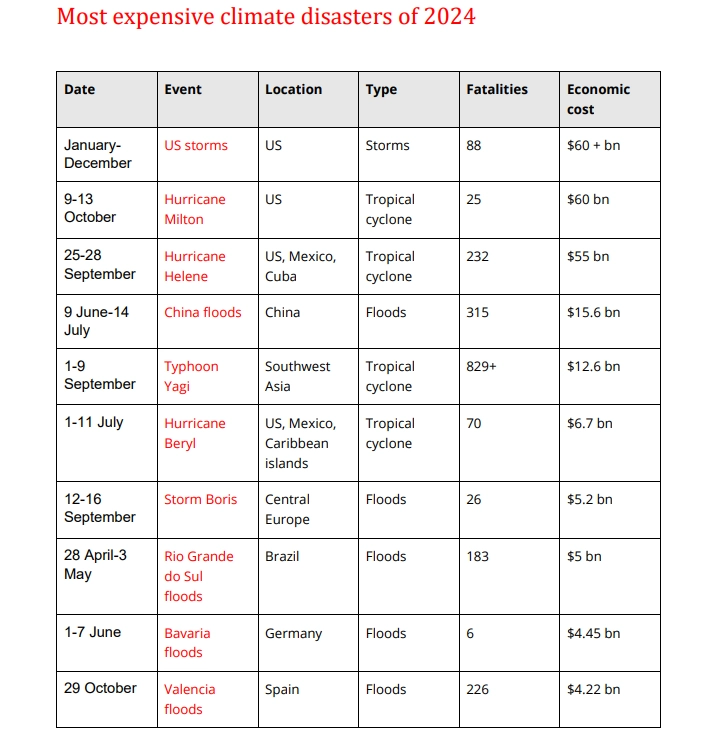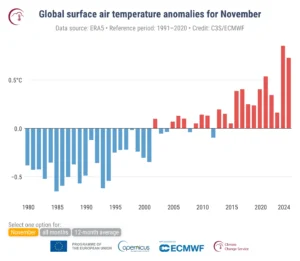The 10 Costliest Climate Disasters of 2024 Revealed

A report by Christian Aid reveals that Europe faced three of the ten financially most expensive climate disasters in 2024. Storm Boris and severe floods in Spain and Germany caused a combined $13.87 billion (€13.5 billion) in damages. These events claimed 258 lives, including 226 deaths alone in Valencia’s October floods.
The report titled as “Counting the Cost 2024: A Year of Climate Breakdown” highlights the ten most costly climate disasters of the year.
The ten costliest disasters globally all surpassed $4 billion (€3.8 billion) in damages, with estimates based on insured losses. True costs are likely higher, as many human and economic losses remain uncounted. Other disaster reported could be more or equally devastating, the report notes, as many occurred in poorer countries with little insurance and scarce data.
The U.S. Leads in Climate Costs
The United States faced the highest financial losses.
Hurricane Milton in October caused $60 billion (€57.5 billion) in damages and killed 25 people, making it the most expensive disaster of the year.
Hurricane Helene, which hit the U.S., Cuba, and Mexico, followed with $55 billion (€53 billion) in losses and 232 deaths.
Also Read | Climate Change Supercharged Hurricane Helene’s Downpours – New Study
Even excluding hurricanes, other storms in the U.S. cost more than $60 billion and claimed 88 lives.
Some of the most costly events affected poorer countries. These included cyclone Chido in Mayotte possibly killing over 1,000 people, at least 829 killed when Typhoon Yagi hit southwest Asia, drought in Colombia, floods in West Africa, Southern Africa’s worst drought, heatwaves of Bangladesh and more weather events claimed lives and economic damages.

The 2024 disasters caused $229 billion in damages and claimed 2,000 lives, according to the report.
According to the Christian Aid’s CEO, Patrick Watt, “The climate crisis is truly turning the world upside down.”
“The suffering caused by the climate crisis is a political choice. These events are being supercharged by
decisions to keep burning fossil fuels, to allow emissions to rise, and the failure to deliver on financial
commitments. In 2025, we need to see world leaders act, to benefit communities who are already
adapting to climate change at a local level, but who urgently need additional support to protect their
land and livelihoods.”
2024 is now certain to be titled as the warmest year on record, beating the mean temperature rise of 2023. Met Office has warned that 2025 is likely to follow 2023 and 2024 in becoming another heated year on record.
“I can officially report that we have just endured a decade of deadly heat. The top 10 hottest years on record have happened in the last 10 years, including 2024,” António Guterres, the UN Secretary-General, said in his annual new year message.






